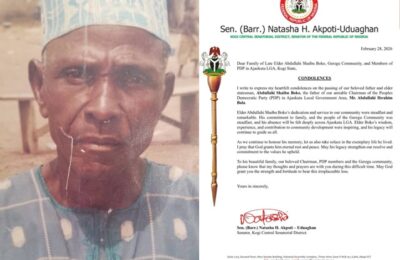By Musa Bakare
Nigeria’s political history is replete with shifting alliances, power struggles, and high profile betrayals. Yet, a troubling trend continues to take center stage: politicians turning against the very benefactors and mentors who once paved their path to prominence.
Perhaps no contemporary example better illustrates this than the political journey of Asiwaju Bola Ahmed Tinubu, a man whose strategic acumen and generosity were instrumental in the rise of many current political actors. Today, some of these beneficiaries are seen aligning with strange bedfellows in a desperate coalition, plotting to unseat him ahead of the 2027 elections.
In Nigerian politics, relationships are often forged through goodwill, mentorship, and patronage. Benefactors and mentors provide access, protection, and resources; in return, beneficiaries are expected to demonstrate loyalty and respect. This mutually beneficial structure has sustained political ecosystems across the world. When it is violated, the result can destabilize institutions, fracture parties, and erode trust in leadership.
The quest for personal autonomy and independent identity in politics is, of course, not inherently wrong. But when such pursuits are cloaked in betrayal and driven by unchecked ambition, often disguised as righteous rebellion it weakens the very fabric of political cohesion. The short term gains from such acts usually come at the cost of long term relevance, legacy, and credibility.
Public perception only complicates matters. Those who betray their benefactors frequently attempt to rebrand themselves as reformers, claiming to challenge corruption, favoritism, or authoritarianism. While this narrative sometimes resonates with few disenchanted public, it often masks a deeper truth one rooted in opportunism rather than principle.
To fully grasp the gravity of this betrayal, one must view it through the lens of Nigerian political history. From military coups to party implosions, the country has endured countless acts of political treachery in the name of ambition.
What makes the betrayal of President Tinubu especially painful is his well known record of forgiveness, generosity, and tolerance. He has consistently shown a rare large heartedness, extending reconciliation to former foes. Unlike others who retaliate with vengeance, President Tinubu has often responded with maturity. Yet, this grace has not stopped some of his former allies from turning against him.
In these turbulent political waters, survival has become a game of deception and strategy. Many politicians now seek new alliances, forge opportunistic coalitions, or engage in populist propaganda. While a few enjoy fleeting success, many eventually fall victim to the same treachery they once used against others.
Beyond the strategy, however, lies a deeper moral question: What are the ethical responsibilities of a political beneficiary? When a trusted protégé becomes an ardent adversary, does integrity still matter? In a political culture where loyalty is increasingly discarded for convenience, Nigerians must ask: Where do we draw the line between ambition and betrayal?
The nation is currently witnessing the ripple effects of these betrayals, not only within the ruling party but across the wider political landscape. Those who once stood shoulder to shoulder with President Tinubu and now turn against him will not be remembered as heroes of reform, but rather as cautionary figures symbols of political regression.
The betrayal of benefactors, particularly of a statesman like Asiwaju Bola Ahmed Tinubu, is more than a personal slight. It reflects a deeper erosion of ethics and values within our political system. If Nigeria is to mature into a stable democracy, we must once again regard loyalty and integrity as strength, not as weaknesses. We must begin to reward consistency, honor genuine relationships, and temper ambition with gratitude.
– Musa Asiru Bakare
Foundation Member, All Progressives Congress (APC), Member, Tinubu Support Group (TSG) and Political Analyst writes from Lokoja, Kogi State.




